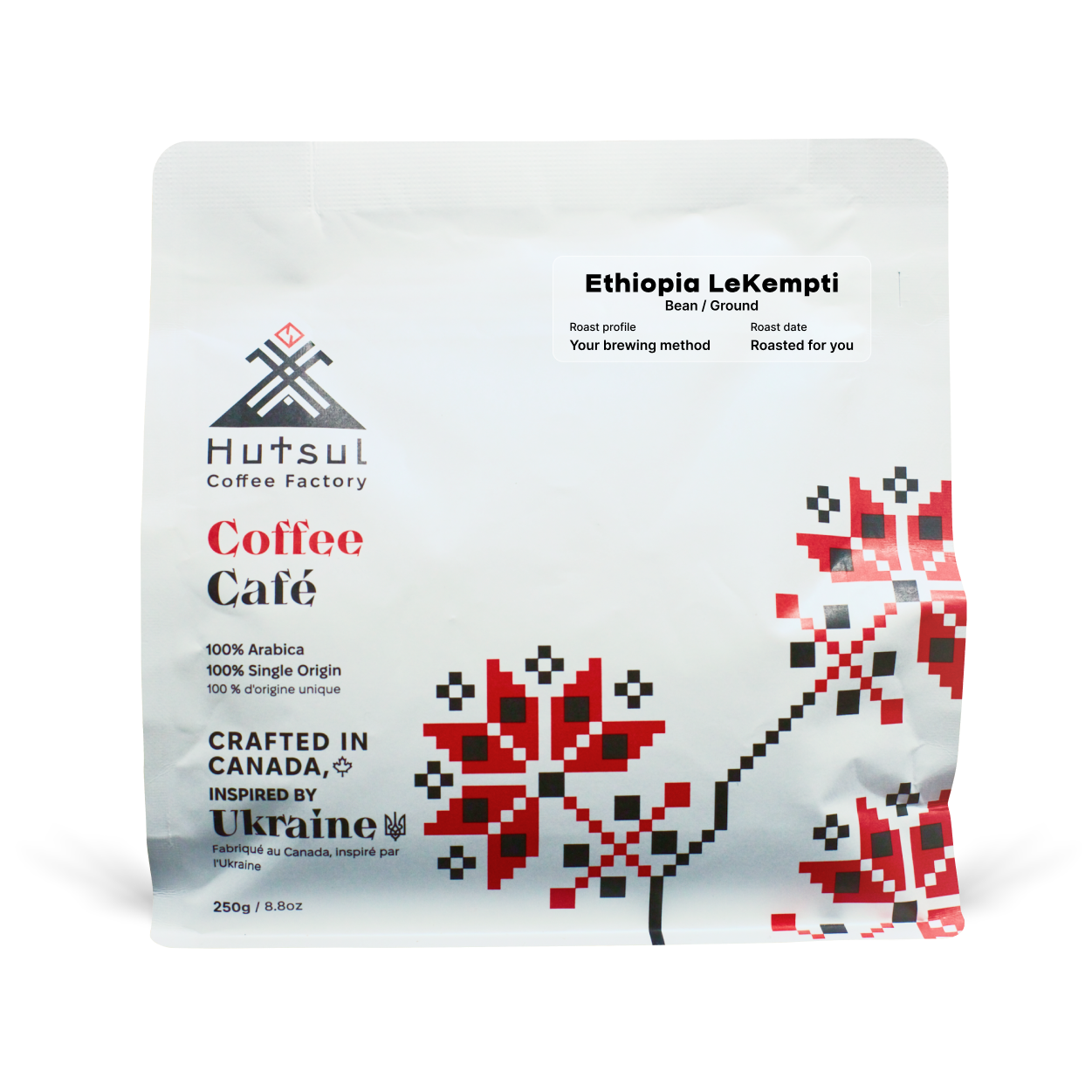Ethiopia LeKempti
Almonds, caramel, lime, white berry, dried fruits
Processing method — Natural
Type of coffee — Arabica
Country of Origin — Ethiopia 🇪🇹
Region of Origin — LeKempti
Altitude — 1900-2100 m
Acidity — ■□□□□
Aroma — ■■□□□
Strength — ■■■■□
Bitter — ■■■■□
Lekempti, also known as Nekempti, is a remarkable region nestled in Wollega, located in the highland area of Southwestern Ethiopia. This province is home to the Oromo tribe, the largest ethnic group in the country, who have a rich cultural heritage deeply tied to the land. Many Oromos embrace farming as their way of life, and coffee is a source of pride and livelihood. The coffee, cultivated at elevations between 1,900 and 2,100 meters, is cherished for its bold and fruity with intense berry and tropical flavors, a syrupy body, and a sweet, lingering finish. It is celebrated for its taste and the dedication and care that goes into its cultivation, featuring a gentle acidity that beautifully connects with its exquisite and clean aftertaste.
What Makes Lekempti Coffee Unique?
Wollega is blessed with more rainfall than the drier northern and eastern parts of Ethiopia, which genuinely nurtures the land.
Often marketed under the name “Lekempty,” this coffee represents not just a beverage but a connection to the roots of Western Ethiopian coffee culture. It originates from the nearby city of Nekempti. However, its true heart lies further west in East Wellega, also known as “Misraq Wollega,” specifically in the Gimbi woreda.
Creating Lekempti coffee is a labor of love; it's sun-dried and nurtured in the warm Ethiopian sun. Known for its larger bean size, this coffee often has a delightful and fragrant aftertaste that can remind you of a blossoming flower. It’s more than just coffee—it’s a taste of the land and the people who cultivate it with care and passion.
Natural (Dry) Processed Coffee
Processing Method: In natural processing, coffee cherries are picked and then dried with the fruit pulp still intact around the beans. They’re often spread out on raised beds or patios to dry in the sun, where they are turned regularly to prevent mold or uneven drying. This process can take several weeks, and during this time, the bean absorbs sugars and flavors from the fruit pulp, which is later removed once the beans are fully dried.
Taste Profile: Natural coffees tend to be fruity, bold, and complex. The extended contact with the fruit imparts berry-like, tropical, or winey flavors, often with a syrupy body and sweet aftertaste. However, the natural process can introduce inconsistency, so the flavor profile may vary from batch to batch, depending on the drying conditions and the ripeness of the cherries.
Taste Preference: Natural coffees are popular among those who enjoy unique, bold, and fruit-forward flavors. These coffees may appeal to drinkers who appreciate a more adventurous and diverse cup, as each natural coffee can have its own personality.


